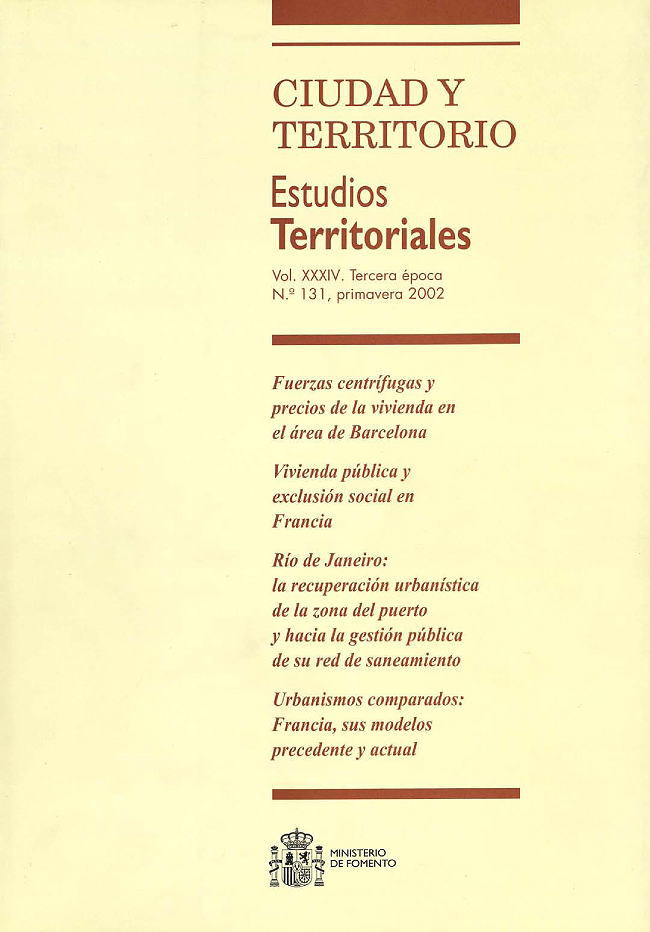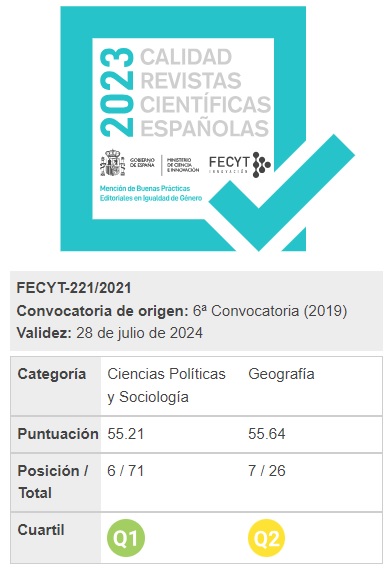Centrifugal Forces in the Residential Markets: the Situation of the Barcelona Catchment Area
Keywords:
Localización espacial, demanda de viviendas, mercado de trabajo, política territorial, BarcelonaAbstract
This paper presents an economic analysis of residential location of economic agents. Our main theory result
is that dispersion becomes increasingly when the transportation cost is sufficiently low and compensation
for commutes takes the form of both lower housing prices and higher wages. Also, this paper tries to find
evidence of the existent relationship between residential prices and economic and demographic factors that
are demand determinants such wages, migrations and productive structure, among others, to explain price
formation and urban dispersion.We estimate a model of residential location using a desirable residential and
workplace amenities between several jurisdictions in the Barcelona Functional Area. The results show
evidence on determinants of housing prices and how some relationships appears to exist between price levels
and families’ waged income as well as with population and productive structure.
Downloads
Downloads
Published
How to Cite
Issue
Section
License
Copyright (c) 2002 Óscar Mascarilla Miró

This work is licensed under a Creative Commons Attribution-NonCommercial-NoDerivatives 4.0 International License.
Considering the provisions of the current legislation on Intellectual Property, and in accordance with them, all authors publishing in CyTET give -in a non-exclusive way and without time limit- to the Ministry of Transport, Mobility and Urban Agenda the rights to disseminate, reproduce, communicate and distribute in any current or future format, on paper or electronic, the original or derived version of their work under a Creative Commons Attribution-NonCommercial-NoDerivative 4.0 license International (CC BY-NC-ND 4.0), as well as to include or assign to third parties the inclusion of its content in national and international indexes, repositories and databases, with reference and recognition in any case of its authorship.
In addition, when sending the work, the author(s) declares that it is an original work in which the sources that have been used are recognized, committing to respect the scientific evidence, to no longer modify the original data and to verify or refute its hypothesis. Author(s) also declare that the essential content of the work has not been previously published nor will it be published in any other publication while it is under evaluation by CyTET; and that it has not been simultaneously sent to another journal.
Authors must sign a Transfer of Rights Form, which will be sent to them from the CyTET Secretariat once the article is accepted for publication.
With the aim of promoting the dissemination of knowledge, CyTET joins the Open Journal Access (OA) movement and delivers all of its content to various national and international indexes, repositories and databases under this protocol; therefore, the submission of a work to be published in the journal presupposes the explicit acceptance by the author of this distribution method.
Authors are encouraged to reproduce and host their work published in CyTET in institutional repositories, web pages, etc. with the intention of contributing to the improvement of the transfer of knowledge and the citation of said works.








 Enlace a CyTET en Linkedin
Enlace a CyTET en Linkedin